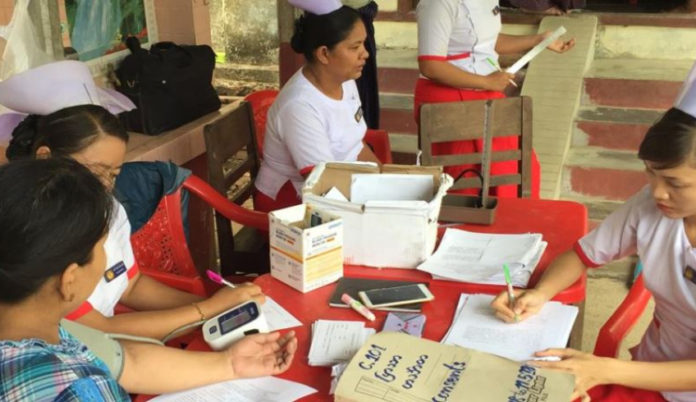New Delhi (NVI): The COVID-19 pandemic is disturbing global efforts to tackle tuberculosis (TB), with cases to rise without urgent action and funding, the World Health Organization (WHO) said.
The new report from WHO showed that access to TB services remains a challenge, and that global targets for prevention and treatment will likely be missed without urgent action and investments following the outbreak of COVID-19.
“Equitable access to quality and timely diagnosis, prevention, treatment and care remains a challenge,” said Tedros Adhanom Ghebreyesus, Director-General of WHO. “Accelerated action is urgently needed worldwide if we are to meet our targets by 2022,” he added.
According to the WHO report, prior to the COVID-19 pandemic, many countries were making steady progress in tackling tuberculosis, with a 9 per cent reduction in incidence seen between 2015 and 2019 and a 14 per cent drop in deaths in the same period.
There has been a continuous drop in the high-level political commitments at global and national levels that were earlier on delivering results in the fight against TB before countries shifted all the attention to fight COVID-19, WHO added.
The report also said that approximately 1.4 million people died from TB-related illnesses last year. Of the estimated 10 million people who developed TB that year, some 3 million were not diagnosed with the disease, or were not officially reported to national authorities.
However, the situation is even more acute for people with drug-resistant TB. About 4,65,000 people were newly diagnosed with drug-resistant TB in 2019 and, of these, less than 40 per cent were able to access treatment, the situation is expected to worsen in 2020.
There has also been limited progress in scaling up access to treatment to prevent TB, the report said.
Moreover, the data collated from over 200 countries has shown significant reductions in TB case notifications in the first half of 2020, as countries imposed lockdowns to curb the spread of COVID-19.
The three high burden countries – India, Indonesia, the Philippines reported drop of 25-30 per cent between January and June 2020 compared to the same six month period last year. These reductions in case notifications could lead to a dramatic increase in additional TB deaths, according to WHO modelling.
Meanwhile, the WHO warns that human, financial and other resources have been reallocated from TB to the COVID-19 response in all countries. These continued disruptions in services caused by the pandemic have led to further setbacks, data collection and reporting systems have also been negatively impacted.
In addition to this, the organization guidance that countries have taken measures to mitigate the impact of COVID-19 on essential TB services, including by strengthening infection control.
“In the face of the pandemic, countries, civil society and other partners have joined forces to ensure that essential services for both TB and COVID-19 are maintained for those in need,” said Tereza Kaseva, Director of WHO’s Global TB programme.
“These efforts are vital to strengthen health systems, ensure health for all, and save lives,” Kaseva added.
Tuberculosis (TB), the world’s deadliest infectious killer, is caused by bacteria (Mycobacterium tuberculosis) that most often affect the lungs. It can spread when people who are sick with TB expel bacteria into the air for example, by coughing.
Nearly 90 percent of those who fall sick with TB each year live in 30 countries. Most people who develop the disease are adults.
Tuberculosis is preventable and curable, about 85 per cent of people who develop TB disease can be successfully treated with a 6-month drug regimen; treatment has the added benefit of curtailing onward transmission of infection, the report said.
-RJV








